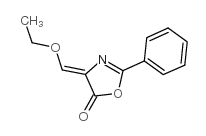| 结构式 | 名称/CAS号 | 全部文献 |
|---|---|---|
 |
丙酮
CAS:67-64-1 |
|
 |
4-乙氧基亚甲基-2-苯基恶唑啉-5-酮
CAS:15646-46-5 |